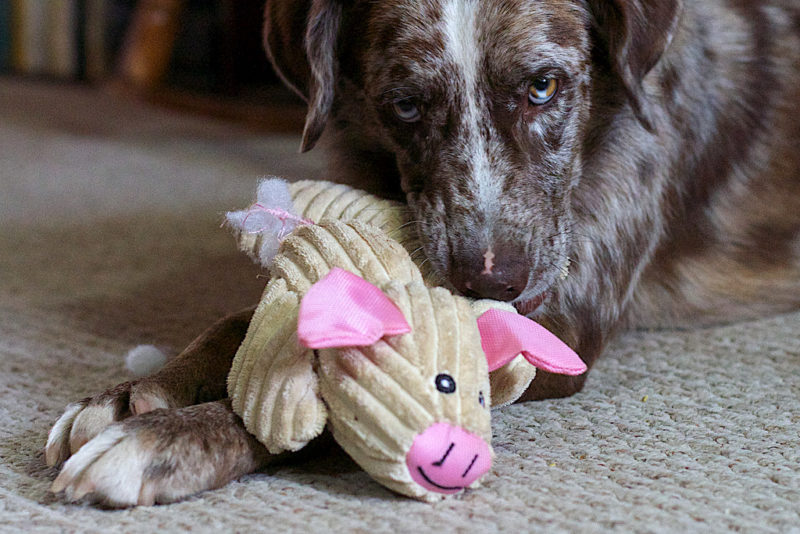First thing each day, I watch my King Charles Cavalier chase after the pigeons that invade our (his) garden, pigeons he has as much chance of catching as he does the squirrels he joyfully pursues in his daydreams. When we once came across a dead squirrel lying on the pavement, the poor dog had no idea what to do. His impulse wasn’t to rip into and devour this ‘prey’ but rather to shrink away in confusion. While JD’s natural instinct is to chase other animals, when it comes down to it he has zero desire to actually tear into them.
Dogs are not ‘friendly wolves’
Still, the assumption that our dogs are natural carnivores prevails and is used as a key marketing messages for raw pet food companies pushing grain-free or ‘all-meat’ products (proposed as ideal for animals that descended from wolves). Perhaps this shouldn’t come as a surprise when we consider that many people still see humans as carnivorous predators. What vegetarian hasn’t been told “But it’s the circle of life! We were born to hunt and eat other animals!” Of course, because nowadays we no longer have to eat meat, we can make rational decisions based on morality rather than necessity. We can decide that we’d rather choose a tasty soy-based meat alternative, or an oat milk, or use flaxseed instead of egg in a cake, and know that this decision is benefiting the environment, other animals, and our own health. But what about our companion animals? Well, our dogs are really no closer to wolves than we are to our cavemen ancestors. Evidence suggests that we domesticated these animals as long as 33,000 years ago, when we were very much still hunter-gatherers. To equate the needs and desires of today’s pet dogs with those of wild creatures seems slightly crazy.
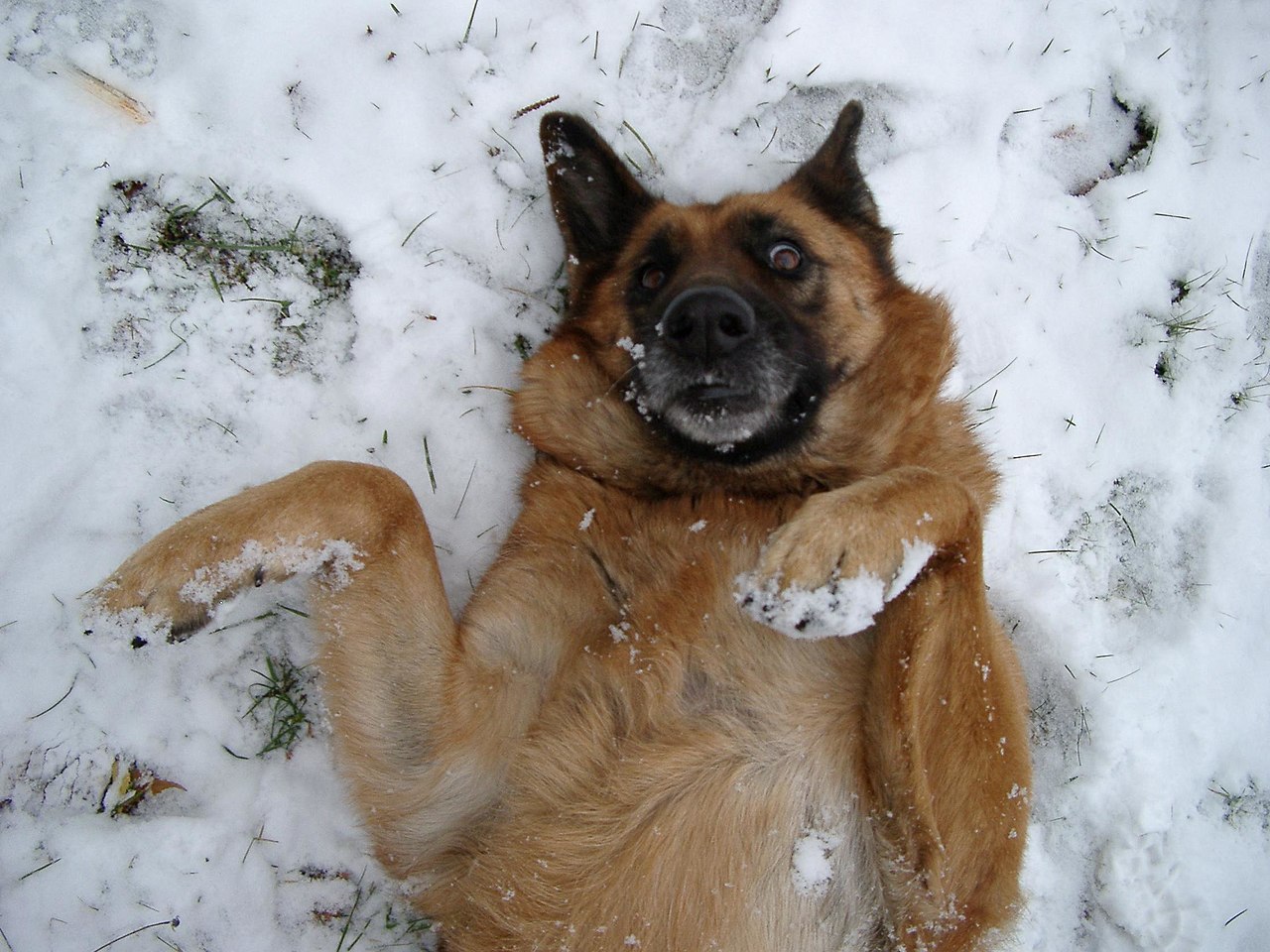
Our dogs have evolved to digest the starch in plant-based or omnivorous meals, and have no need to hunt and kill their own food: the responsibility has shifted to us, their human companions, to provide them with healthy, balanced meals. If those meals can not only be nutritionally fulfilling and tasty but also benefit the planet and other creatures, why should they have to contain meat or animal products? Removing animal flesh from pet food would have an enormously beneficial impact on the environment and the numbers of sentient animals farmed to meet demand (big demand – 180 million dogs and cats are kept in America alone).
Is meat really a ‘good’ ingredient?
Growing up, I remember my family’s rescue retriever Benson’s favourite dish: not a T-bone or a thick pork chop, but pasta (preferably spaghetti, but he’d take rigatoni in tomato sauce if he had to). So when I heard that the six dog shelters in LA are proposing to go entirely plant based, my immediate thought wasn’t “those poor pooches” but “lucky doggos!” Of course, I wouldn’t advise pasta being the main ingredient in a plant-based diet for humans or animals (no matter how good that sounds). But with a balanced, nutritional meal plan, the evidence suggests that dogs can thrive. We should also bear in mind that most dog food isn’t made of the juiciest cuts of meat but of ‘by-product’, a euphemism for the cast-off animal body parts that slaughterhouses can’t or won’t sell to humans. Most pet owners I know would put their own lives at risk to protect their companions, so why are we compromising like this on their diets?
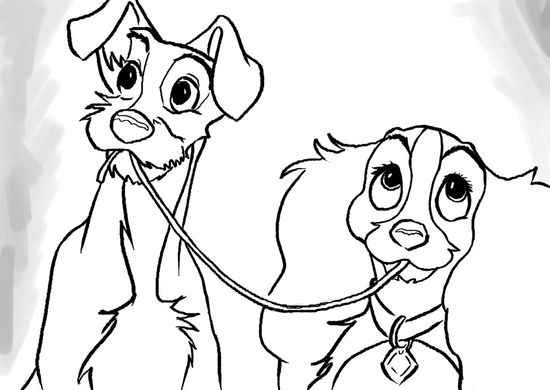
The hidden animal victims in the pet food industry
Of course, many of us are also compromising on our own morals, author Julian Baggini pointing out that “the only animal welfare that seems to count when buying pet foods is that of the beast being fed”. In the America about 300 manufacturers produce more than 7 million tons of pet food each year, a large percentage of which is meat (mixed with cereals, grain, vitamins, and minerals). Currently, pets consume a quarter of all animal-derived calories in the US, the pet-food industry playing a significant role in propping up factory farming: pet food rarely carries any assurance of higher livestock welfare, in America or the UK.
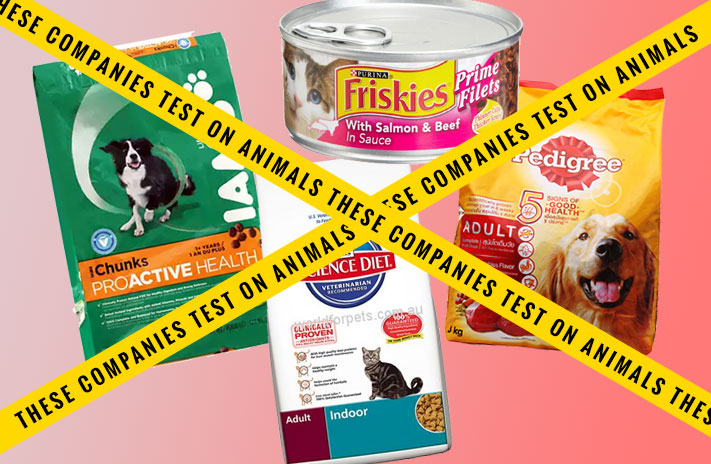
We see a similar discrepancy between the care we give our companions and that we give other domesticated animals in our society in the testing of pet food. Cruel vivisection practices in the industry were exposed in 2003 undercover footage from a testing facility contracted by Iams, where many invasive tests resulted in the death of laboratory animals. Unfortunately this harmful animal testing isn’t unusual. In October last year a Foundation for Biomedical Research campaign called Love Animals? Support Animal Research celebrated “how medical discoveries made with animal research have helped our companion animals live longer, happier, healthier lives.” Why is it acceptable to conduct dangerous experiments on one kind of animal to benefit another, even when both these animals might be, for instance, beagles? Perhaps we should be making greater demands of pet food manufacturers, insisting that the food we feed our loved companions has not been produced at the expense and suffering of another, less-privileged animal. Baggini considers that as human demand for higher welfare meat grows, the by-products of that meat available to pets will be higher welfare too. But until then, the impetus is on us to demand the best, ethically and nutritionally, for us and for our pets – and perhaps that’s a diet that omits meat altogether.
Evidence of dogs thriving on plant-based diets
While we’re still in the early days of commercial testing, many veterinarians strongly advocate that canines can do very well on vegetarian or vegan diets. A 16-week study of 12 sprint-racing Siberian huskies had some of the dogs fed a commercial diet recommended for active dogs, and others a meat-free diet formulated to the same nutrient specifications. Regular veterinary checks and blood tests were performed, and showed that all dogs remained in excellent physical condition with normal blood results throughout. Indeed, small animal nutritionist Cailin Heinze states that “it’s much more common for dogs to have allergies to meat than to grain” with chicken, beef, eggs, dairy and wheat causing the most common allergies in canines. But of course, we must be mindful of our own dog’s specific, individual needs. In a recent interview with the New York Times, Lisa M. Freeman, a board-certified veterinary nutritionist, concluded “We want them to be eating a diet that is nutritionally balanced. That means it has all the proteins, vitamins and minerals that they need in the correct ratios and with the best quality control. It isn’t easy to formulate a high-quality diet for dogs, and it’s particularly difficult with a vegan diet.” Still, with more and more reputable vegetarian and vegan dog food brands springing up every day, the challenge of formulating this balanced diet is being taken out of our hands. It’s becoming increasingly easy to make a transition that could have multiple benefits, from reducing pet obesity to knowing one is making the most ethical choice for planet, farmed animal and pet.
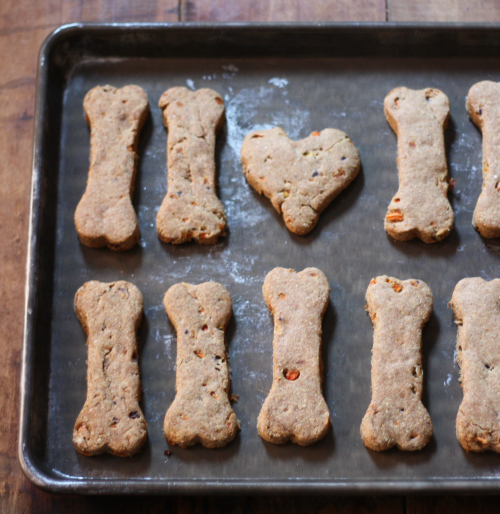
Carrot and banana dog treats, recipe by 17apart
But what about cats?
Cats were domesticated far more recently, and as any reluctant recipient of their pet’s proud ‘catch of the day’ will know, the feline instinct to hunt and kill is very much alive and kicking. Moreover, domestic cats are obligate carnivores; they lack the genetic, biochemical and behavioural adaptations that enable dogs to thrive on an omnivorous diet. They take 52% of metabolizable energy from protein, similar to the diet of wild cats, meaning that they cannot obtain all the nutrients that they need from plants and bacteria. While research shows that cats can survive on a vegan diet, they require extremely careful monitoring and nutritional substitutes (vegan diets can result in more alkaline urine, for instance, which can cause urinary stones and serious blockages in male cats). In reality, very few owners have the time or confidence to undertake this challenge. Yet exciting changes are just around the corner: the advent of ‘clean’ or cultured meat, grown from animal cells harvested without harming the donor, could see cat food that contains the required meat proteins without the cruelty.
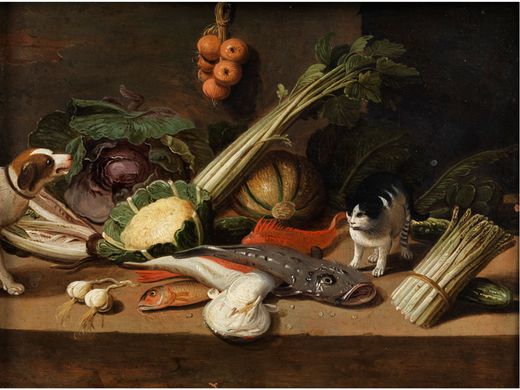
I’m the woman who puts her new coat on the bar floor to make sure my dog is comfy; he was the ring-bearer at my wedding; I once threw myself across a busy road in pursuit of this embarrassingly badly-trained cavalier. So it’s about time I started thinking more about the quality of the food I give him every day. And while my dog might not be kept awake at night worrying about climate change and the fate of factory-farmed animals, nor is he responsible for purchasing the food that funds these problems. That burden lies with me and, happily, it’s never been easier to buy out of unethical dog food production. With a little research and some thoughtful choices, I can sleep soundly knowing that my dog is healthier, and the world is no worse off because of us.
Some useful links
On animal testing in the pet food industry, and finding cruelty-free brands: https://www.crueltyfreekitty.com/pets/cruelty-free-pet-food/
On myths about plant-based pet food: https://www.vegansociety.com/whats-new/blog/vegan-animal-diets-facts-and-myths
Andrew Knight’s research on vegetarian versus meat-based companion animal diets: http://www.mdpi.com/2076-2615/6/9/57/htm
